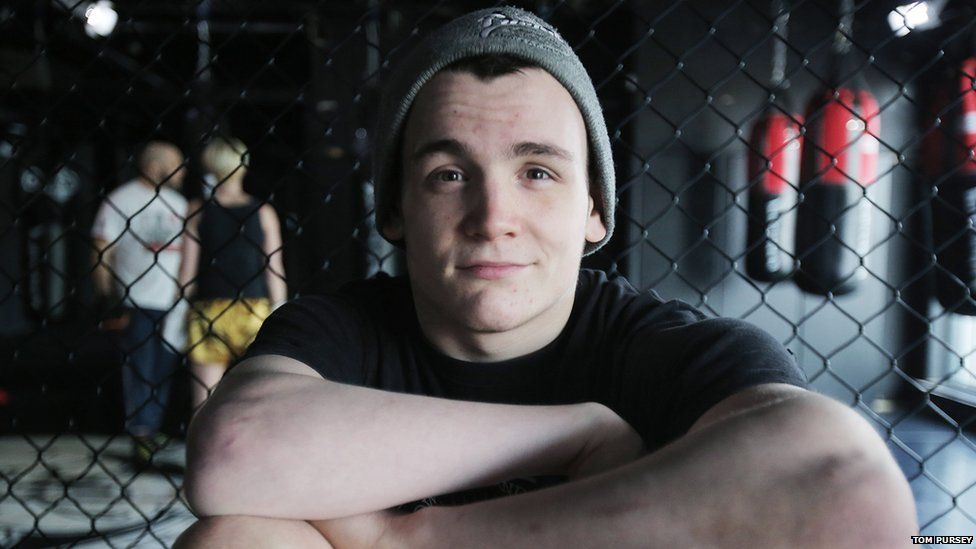Yes, disabled people do have sex - and maybe we should talk about it
- Published

"We're all human, we all have sex," 19-year-old Jack West says.
"Just because you're disabled doesn't mean you're not going to, or you're not able to do it."
As well as being a mixed martial arts fighter, Jack has hemiplegia, which affects the movement in the right side of his body.
"I do remember speaking to one person [online], I mentioned my disability and they said 'that's disgusting' and they didn't talk to me," he says.
"But I laughed about it. That's the sort of person I am. I've grown a thick skin."
Like many 24-year-olds, Holly Dunkley is looking for a partner on dating apps and websites. She also uses a wheelchair.
"They ask me a lot about my sex life, that's pretty weird, because it's none of their business.
"They just assume that I'm a virgin," she says of the men she meets online.
Holly has cerebral palsy and sclerosis, where tissues in the body stiffen, and says some people she meets treat her disability like a "taboo", while only a "handful" speak to her like a normal person.
"They'll say things like, 'You're too pretty to be in a wheelchair,'" she says.
Holly says one of the misconceptions is that a partner might "hurt" or "damage" her.
"You can have a normal sex life and have a disability," she explains.
New research from the charity Scope suggests that just one in 10 non-disabled young people has been on a date with a person with a disability.
Their new campaign, End the Awkward, is looking to make people feel more comfortable when talking to - or dating - a disabled person.
Jack has a condition known as hemiplegia, which affects the movement in the right side of his body. He is also a mixed marital arts fighter.
He's just started a new relationship and says he's confident talking to people in clubs and bars. He met his current girlfriend on a night out.
Although the majority of his experiences are positive, occasionally when he's tried online dating, he has received unpleasant comments.
Scope is campaigning for non-disabled people to be more open to meeting people with a disability.
Their research, which surveyed 2,000 people from a self-selecting panel, suggests that more than half of people aged between 18 and 35 had never started a conversation with a disabled person.
Both Jack and Holly have lots of friends and both say they are the only people with a physical disability in their social group.
Scope's research suggests three quarters of young people had never invited a person with a disability out on a social occasion.
Jack says he enjoys going out on nights out but Holly says sometimes going for a drink can be difficult for her.
"If you go to nightclubs it can be a nightmare because people try to set you up with their other disabled friends," she explains.
"If you go to bars, sometimes you meet nice people, but a lot of the time they're drunk and they're like, 'I'll go with you, because I can tick you off my list.'"
She adds: "If I'm honest, it does get frustrating, but you just have to carry on, don't you? There's someone out there for everyone."
Follow @BBCNewsbeat on Twitter, BBCNewsbeat on Instagram, Radio1Newsbeat on YouTube and you can now follow BBC_Newsbeat on Snapchat